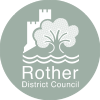Question:
I wonder if you could confirm if this is true or not, it is from an online post by someone in Sidley: “As a ex dustman for 50 years I can honestly say that Rother and most of Britain’s councils have been lying about the recycling of paper , tin cans , garden waste and paper it all goes to landfill sites apart from the scrap metal that we collected and shared the money out at the end of the year so don’t believe what the authorities tell you about recycling its all lies.” I am very concerned about this post for two reasons – the possibility that it is true, and also the way it might influence people to stop recycling. Can you confirm either way please, thank you. (21/01/2019)
Answer:
I can confirm that the statement is not true.
The waste materials collected from Rother households are rigorously recorded, and, as a local authority, Rother has a statutory obligation to submit tonnage figures for recording and monitoring via a web-based portal called ‘WasteDataflow’.
The WasteDataFlow municipal system records waste information for all local authorities across the country and feeds the data direct to the Government.
As well as capturing the amount of household waste and recycling collected, WasteDataFlow also requires local authorities to state where each type of material is being sent for processing, whether this be in the UK, within the EU or outside of the EU.
Of all the material collected as recycling in Rother on average approximately 5% is rejected as contamination after processing by the MRF (Material Recovery Facility) and this rejected material is sent to the ERF (Energy Recovery Facility) for incineration. Within the waste industry and according to Government statistics, a contamination rate of 5% for recycling is considered to be good, although Rother District Council continually strives to improve upon this.
For your information, at the present time Rother currently recycles at a rate of over 50%.
The majority of general household waste collected in Rother (black bin) is taken for incineration to the ERF facility at Newhaven and is used to generate electricity for homes and businesses. A small percentage is sent to landfill when the incinerator is shut down for annual maintenance or material is hazardous or too bulky to incinerate.
All garden waste collected is sent to a Veolia composting facility at Isfield for processing. (22/01/2019)

